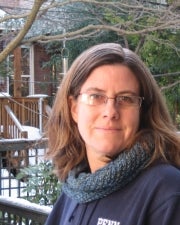
Seminar Leader:
Karen DetlefsenPreface:
Both democracy and expertise are valuable to thought and to human life—democracy for its capacity to take account of a wide range of perspectives and interests, and expertise for its capacity to provide effective solutions to problems we face. But democracy and expertise can collide. In sci-ence, for example, democracy can lead to individuals weigh-ing in on the dangers of vaccinations, against the expert judgment that vaccinations are a common health good. Conversely, claims of expertise can lead to the exclusion (purposeful or inadvertent) of typically marginalized per-spectives. The broadly democratic “history from below” movement of 20th century attempted to eliminate such exclusion by approaching historical events from the view-point of ordinary people. In this seminar, explored how democracy and expertise interact—productively and otherwise—in history and science. As democracy and exper-tise connect with the philosophical understandings of truth and objectivity, they are also intriguing to our understand-ing of literature, both fiction and non-fiction.
| Unit Title | Author |
|---|
2021
|
|
|
Dr. Joy Lurie Friedlander |
|
Keywords: Artistry, Body Mind, Choreography, collaboration, dance, democracy, diversity, Embodied Activism, Equity, Holistic Teaching, Inclusion, Inclusive Pedagogy, perspective, social justice, Somatics |
|
|
|
|
Tracy Saltz |
|
Keywords: active learning, Equity, Math Education, mathematical practices, problem solving, productive struggle |
|
|
|
|
John Taylor-Baranik |
|
Keywords: civic education, civil rights, dialogical pedagogy, inquiry-based learning, interdisciplinary curriculum, media literacy, student research, voting rights |
|
|
|
|
Alexander de Arana |
|
Keywords: History, Humanities, identity politics, political divide, social sciences, social studies |
|
|
|
|
Keeler Park |
|
Keywords: book study, collaborative reading, Creative Writing, Culture, ethnicity, gender, igno-rance, immigrant experience, injustice, knowledge, lan-guage arts, literacy, philosophy, social class, social justice, society, The House on Mango Street, women empowerment, writing project |
|
|
|
|
Kimberly Sweeney |
|
Keywords: biographies, female characters, gender biases, gender stereotypes, inclusivity, non-binary, positive gender role models, transgender |
|
|
|
|
Matthew Menschner |
|
Keywords: Epistemology, Historical Thinking Skills, historiography, History, philosophy, social studies |
|
|
|
|
Carrie Ochs Toledo |
|
Keywords: 5th grade, democratic classroom, diversity, ELA, Els, epistemic injustice, multicultural, storytelling |
|
|
